For Atlanta Jews, Invasion of Ukraine Hits Home
As one Jewish Atlantan said, “Their blood is in my veins and my heart is hurting for the Ukrainian people.”
Dave Schechter is a veteran journalist whose career includes writing and producing reports from Israel and elsewhere in the Middle East.
The Facebook post appeared the day after Russia invaded Ukraine: “Just curious — how many of us with any familial links to Ukraine (like my paternal grandmother’s town of Narodychi) have looked up, say, its distance to Kyiv?”
Within days, more than 80 people, among them numerous Jewish Atlantans, had responded with bits and pieces of their family histories, and the names of Ukrainian villages, towns and cities. The AJT contacted several of these people.
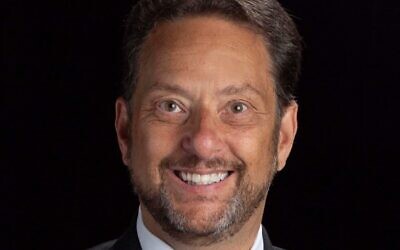
“The invasion of Ukraine has raised my level of interest and awareness of where my grandparents came from,” Ron Leopold said. “I’ve also spoken to family members to get the names of towns and look them up in the map,” locating Talne, Kiblych and Kolky.
“My grandfather’s family escaped from Ukraine — Dnipropetrovsk, now known as Dnipro — in the face of antisemitism, in the early 1900s,” Corey-Jan Albert said. “Obviously it’s been more than a century. So, it isn’t my home, but it certainly informed my mother’s upbringing, which, in turn, informed my own. In that light, it’s part of where I come from.”
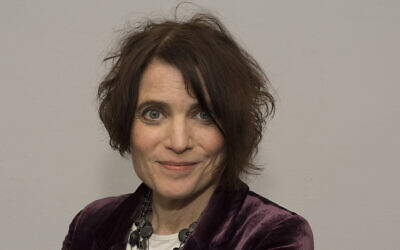
Mim Eisenberg’s maternal grandparents emigrated from Odessa in 1905. “Their blood is in my veins and my heart is hurting for the Ukrainian people,” she said. Eisenberg said that her grandmother never spoke of her home country, “But I think I am following the dreadful news of the invasion with more attention than others who don’t have Ukrainian blood in their veins.”
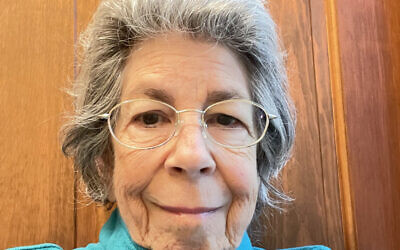
“Three of my branches came from what is now Ukraine in the 19th century and one is from Latvia. Growing up, members of my family called themselves ‘Russian Jews’ and that isn’t inaccurate because Ukraine was part of imperial Russia,” Joe Sterling said. “I am interested in this conflict for many reasons, but the fact that I just might have distant cousins there is a constant thought. I am fascinated with the Jewish community, the bravery of the president [Volodymyr Zelenskyy, who is Jewish] and the strong national identity of the Jewish community there.”
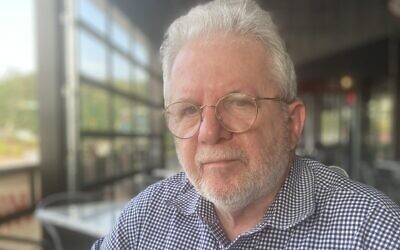
Emory University senior Jacob Busch remembers that national identity from a November 2017 trip to Ukraine. He was part of a national BBYO delegation to the fourth international conference of Active Jewish Teens, an organization of young Jews from countries of the former Soviet Union. The Americans attended the conference in Kyiv and traveled to Kharkiv. They met with Jewish Ukrainians and visited Babyn Yar, where more than 33,700 Jews were shot to death in a ravine by German troops over a two-day period in September 1941.
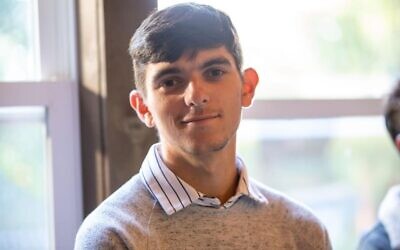
The 22-year-old graduate of Chamblee High School is a double major in history and creative writing and has an interest in journalism as a possible future profession. “I can say that it definitely feels like it’s a little closer to home, having talked to people there and visited there less than five years ago,” Busch said.
He reached out to a friend in Kyiv the morning after Russia invaded Ukraine. “His voice was shaky,” Busch said. “It was clear that this was something new to them, totally terrifying. … It was good to let him know that I supported him. They know we support them.”
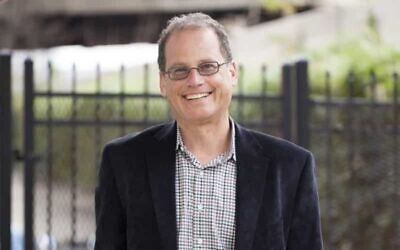
Throughout that trip, “We were witnessing and experiencing the renaissance of Jewish life in the former Soviet Union,” young people either “reconnecting with a lost identity” or discovering an identity, he said.
“For us, American Jews, living in a place like Atlanta … being Jewish is something that is not only accepted, but in some ways appreciated and welcomed,” Busch said. In Ukraine, “There’s an extra point of pride in being Jewish that American Jews take for granted.”
Ukraine’s Jewish community is being aided by funds raised through various Jewish organizations, including the Jewish Federations of North America (JFNA), and locally, the Jewish Federation of Greater Atlanta (JFGA).
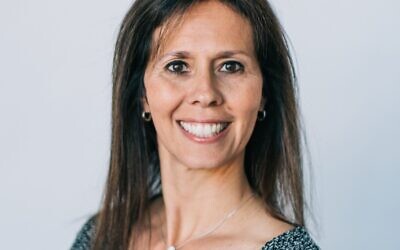
JFGA announced its Ukraine Emergency Fund on Feb. 25, the day after the Russian invasion. “Literally within minutes of sending out our email appeal, Jewish Atlantans responded. Hundreds of donors opened their hearts and supported the campaign with incredible generosity and passion. As of this morning, donations exceeded $612,000. I believe we are well on our way to raising at least three quarters of a million dollars,” Eric Robbins, president and CEO, said in a March 1 newsletter. By March 2, that $750,000 figure had been reached.
The funds will be distributed through partners on-the-ground in Ukraine: the American Jewish Joint Distribution Committee, the Organization for Rehabilitation through Training and the Jewish Agency for Israel. “And 100% of all these emergency contributions will be transmitted to our overseas partners,” Robbins wrote in the newsletter.
The welfare of Holocaust survivors from Ukraine and elsewhere in the former Soviet Union — living in the Atlanta area and in a 10-state region — are the concern of Jewish Family & Career Services. JF&CS handles home care service claims for the Conference on Jewish Material Claims Against Germany (referred to as the Claims Conference) in a region comprised of Georgia, South Carolina, North Carolina, Virginia, Alabama, Mississippi, Texas, Arkansas, Louisiana and a portion of Florida.
When Russia invaded Ukraine, JF&CS proactively reached out to some 90 Ukrainian survivors who are clients — 62 of whom are in Georgia, mostly in the Atlanta area. Now in their 80s and 90s, the news from Ukraine has been traumatizing.
Anat Granath, a clinician on the agency’s Holocaust Survivor Support team, said: “I hear about their anxiety, fear. ‘It’s starting all over again.’ These feelings are not only from Survivors from Ukraine and Russia, but for all of our Holocaust Survivor clients. It is hard. The memories come up. They see the streets they used to walk. They tell us about their experiences. They are very anxious and afraid of war on a bigger scale. Communication is spotty. For those that have family there, they are all so scared.”
There also are 75 Holocaust survivors from Russia in the client base, with 33 being in Georgia. JF&CS asked that anyone knowing of Holocaust survivors in the 10-state region needing assistance contact the agency at 770-677-9360 or visit jfcsatl.org.
- Dave Schechter
- News
- World
- Jewish Family and Career Services
- jewish federation of greater atlanta
- Ukraine
- russia
- Putin
- Ron Leopold
- Mim Eisenberg
- Latvia
- Joe Sterling
- Volodymyr Zelenskyy
- Emory University
- Jacob Busch
- Active Jewish Teens
- BBYO
- Babyn Yar
- Chamblee High School
- Jewish Federations of North America
- Conference on Jewish Material Claims Against Germany
- holocaust
- Corey-Jan Albert



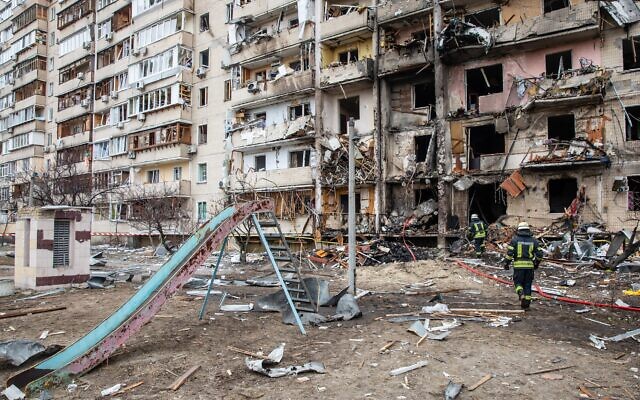
comments